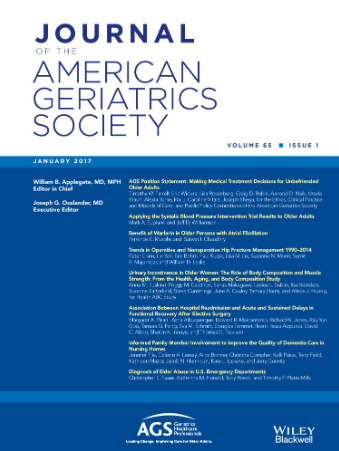Exploring geriatric assessment-driven rehabilitation referral patterns and its influence on functional outcomes and survival in older adults with advanced cancer
Abstract
Background
Older adults with advanced cancer experience functional disability that warrants rehabilitation services; however, evidence indicates inconsistencies in referral. The purpose was to (1) identify predictors of geriatric assessment (GA)-driven referrals to rehabilitation services and (2) explore associations between referral and change in function, health-related quality of life (HRQoL), and overall survival among older adults with advanced cancer.
Methods
This was a secondary analysis (NCT020107443, UG1CA189961) of a nationwide GA clinical trial. Patients were older adults with advanced cancer who had at least one GA-defined physical performance or functional status impairment. Primary outcomes were oncologist-initiated discussion about or referral to rehabilitation services after the GA (Aim 1) and decline in activities of daily living (ADL), Instrumental ADL (IADL), and HRQoL within 3 months, and overall survival at 1 year (Exploratory Aims). Analyses included multivariable logistic regression and Cox proportional hazards models. Demographic and clinical factors were controlled for by using 1:1 propensity score matching.
Results
In total 265 patients were analyzed. After adjustment, impaired cognition (odds ratio [OR] = 2.25, p = 0.01), Karnofsky score indicating disability (OR = 2.86, p < 0.01), and receipt of monoclonal antibodies (OR = 1.95, p = 0.04) were associated with higher odds of referral. In contrast, polypharmacy was associated with lower odds of referral (OR = 0.31, p < 0.01). Referred patients were less likely to decline in ADL (OR 0.30, p = 0.07) and IADL (OR 0.64, p = 0.35), but more likely to decline in HRQoL (OR 1.20, p = 0.67) and have worse survival (HR 1.18, p = 0.62).
Conclusions
Cancer treatment, polypharmacy, cognition, and disability status likely influence oncologists' decision to refer for rehabilitation. Referral was not independently associated with change in functional disability, HRQoL, or survival. Future studies should evaluate patients' utilization of rehabilitation services post-referral and determine whether dose/timing of rehabilitation services influence clinical outcomes.




 求助内容:
求助内容: 应助结果提醒方式:
应助结果提醒方式:


